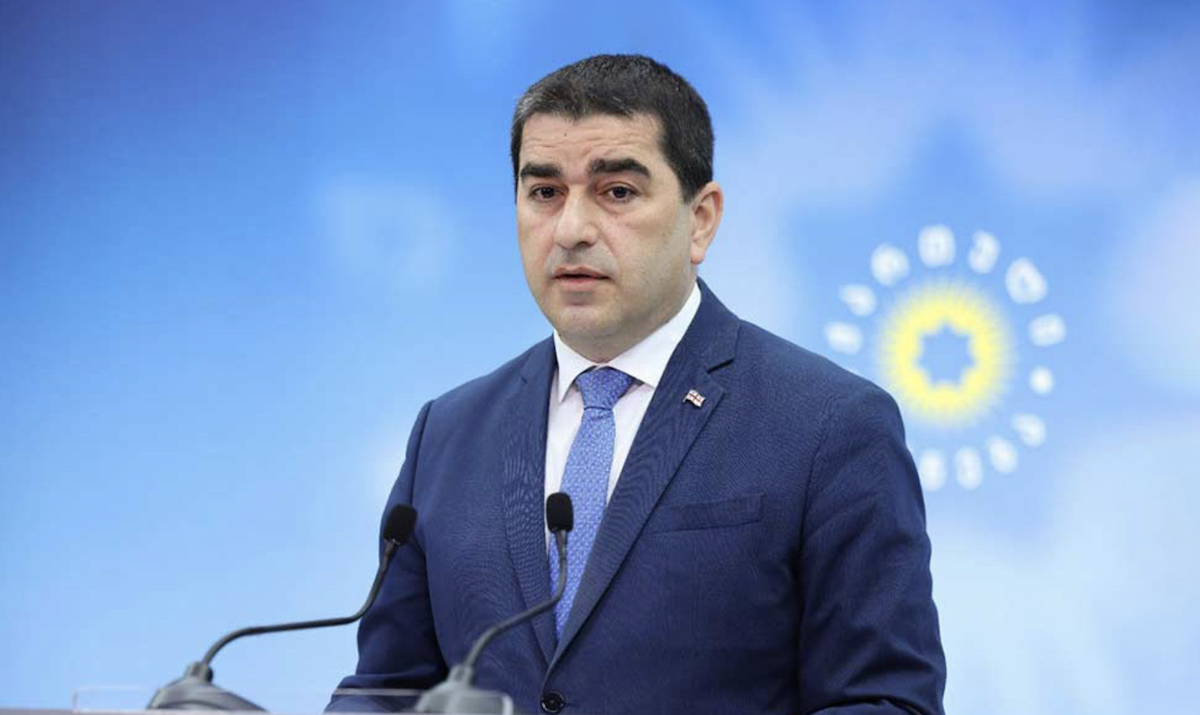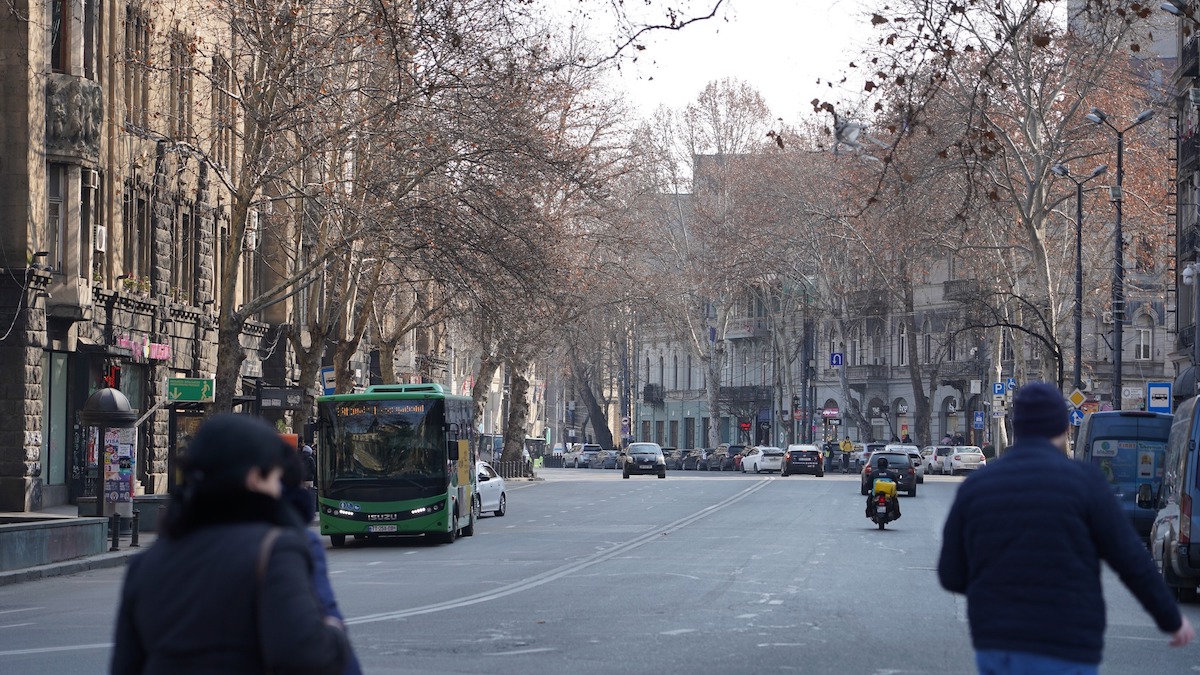The fate of Armenia’s abandoned pensioners
There are more than 463,000 pensioners in Armenia.
The average pension size is 40,477 AMD [about $83], but the market basket comes out to about 62,330 AMD [about $128]. Pensioners who are without the support of their families are particularly vulnerable in this situation.
“I’m not going to start begging…”
Every morning, 78-year-old Anahit Torosyan walks two kilometres from her home to a soup kitchen to receive a daily portion of hot food. She always brings a set of Tupperware with her, in which she takes home the food she receives there.
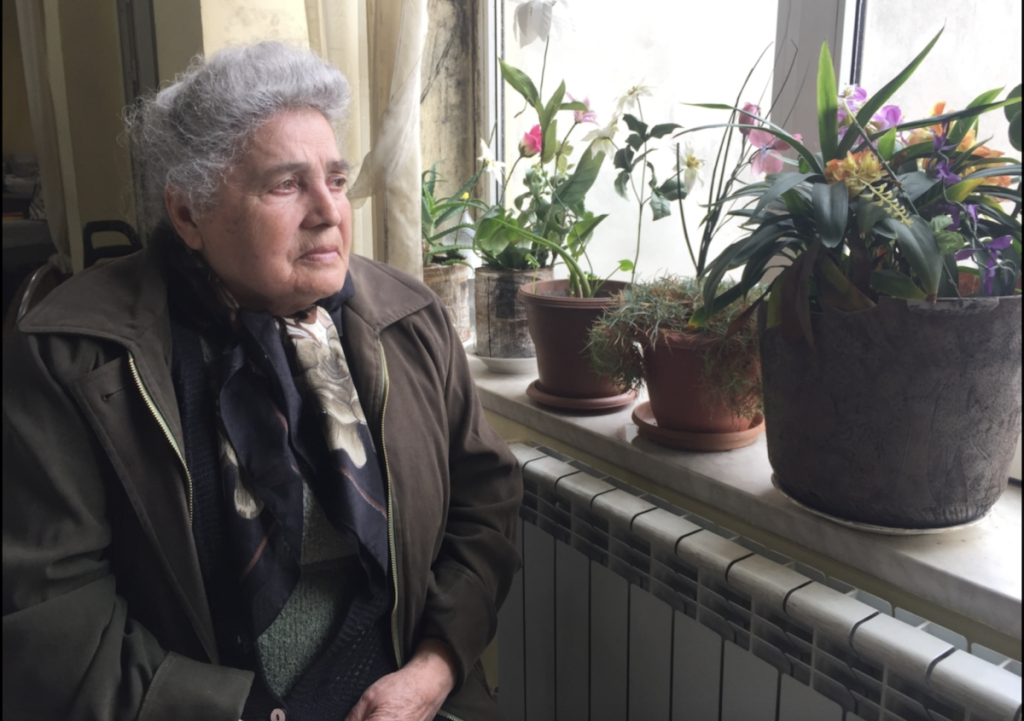
“I can’t eat here, I feel embarrassed. I am embarrassed. But I can’t come – thanks to this soup kitchen I can save 10 thousand drams [about $20] from my pension. I take food home, and I have enough for the whole day,” says pensioner Anahit Torosyan.
In the Soviet years, she worked for 35 years as a saleswoman in a store.
She ended up alone after the deaths of her husband and son. She receives about 40,000 AMD [about $82] from her pension and 18,000 [about $37] from social security per month, given her vulnerable social status.
• What’s better – being a parent to a son or daughter?
• Benefits for having at least one child in Armenia grow by six times
Anahit says she spends most of her pension on medication – she has heart problems, and the rest of the money is barely enough to pay utility costs.
“If it were not for the social security payment, I don’t know how I would live. I don’t even have money left for transport, so I walk to the soup house on foot. Imagine what a terrible situation we’re in. Would I go to a soup kitchen if I received enough from my pension? No, but it is necessary. I’m not gonna start begging, after all. I would like the state to improve the situation of lone old people, we live very poorly,” says Anahit, trying to hide the tears in her eyes.
Soup kitchens
There are 175 pensioners eating at the soup kitchen in Nor Nork on the outskirts of Yerevan.
Soup kitchen chef Rita Mikayelyan has been kneading dough for 22 years, and starts early in order to have time to bake bread before the pensioners arrive.
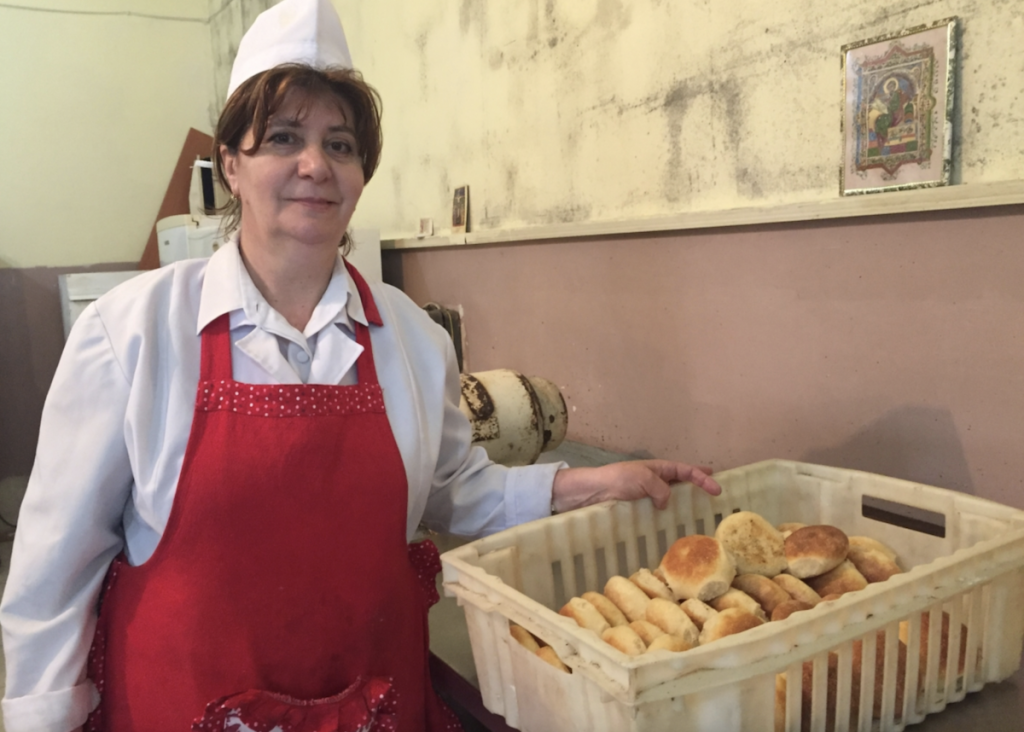
“We open at 10:30, but people already come and wait at the door by ten, so we have to open early. Pensioners come to eat until one o’clock in the afternoon. They say the minimum pension of 30 thousand drams [about $61] isn’t enough. Eating at the soup kitchen allows them to save a little on food – 500-1,000 drams [approximately $1-2] per day.”
Rafik Martirosyan, the soup kitchens project coordinator at Fund for Armenian relief, says that in addition to the soup kitchen in Yerevan, four others operate in the rural areas: in Nor Hachin, Byurakan, Gyumri and Berd. For five days a week, they serve 800 pensioners who do not have familial support. In the past 24 years, the flow of pensioners to the soup kitchens has not thinned out.
“When we opened in 1995, we planned to work for three years. No one thought that the situation would worsen, and people would need more. Believe me, if these people could live without it, they would not come. There are pensioners who have been coming to us for many years.
“Pensions and social benefits are not so high that people can afford not to come to us. Migration has also affected this process. Many people’s children have left the country, and parents often do not even know where they are now,” says Martirosyan.
“I receive my pension and hurry to repay my debts”
Sixty-eight-year-old Lucy Shmavonyan is eating a portion of rice, cutlet and salad with cabbage. She takes home soup in a bowl she brought with her. She says she worked as an English teacher, and today lives on a pension of 32,000 drams [about $65] and 18,000 in social security [about $37].
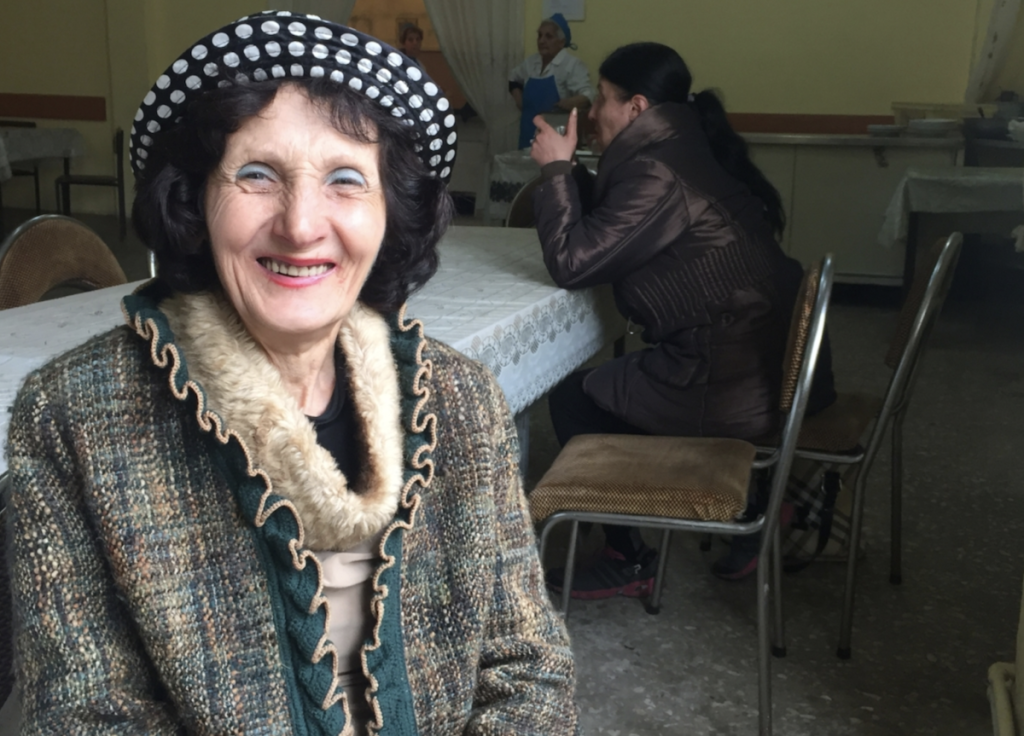
“I walk about six kilometres to get here. What else can I do? I don’t have enough money, I barely make ends meet and I have debts at the market. But I am a very responsible person, everyone knows that. If I say I will repay you at such and such a time, that’s it, they take me at my word. When I get my pension I hurry to repay my debts. Only after that can I calmly fall asleep,” says Lucy Shmavonyan.
Home care for single pensioners
The head of the department for pensioners affairs at the Ministry of Labour and Social Affairs, Anahit Gevorgyan, says that approximately 10 per cent of pensioners – around 38,000 people – do not have familial support.
“Not all of them need care or financial support, but around 50 per cent are truly in need. We cover the needs of 10,000 people. We provide our services through the support of state and non-governmental organizations.”
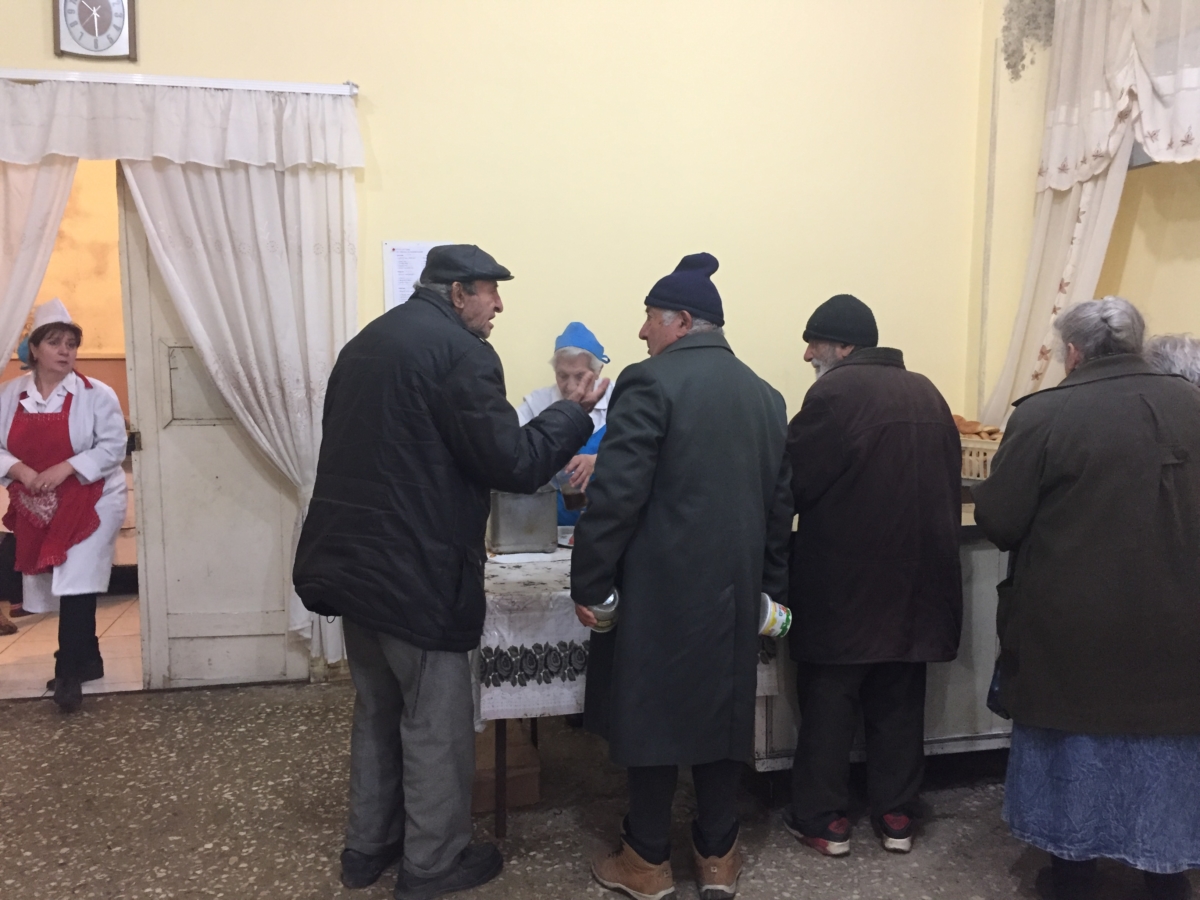
Gevorgyan says the agency provides two services for the elderly who need care:
• round-the-clock home care, and
• day supervision.
There are no state daycare centres for pensioners in Armenia. These services are provided by a number of non-governmental public organizations. Among them are the charities Mission Armenia, Armenian Caritas, the Vanadzor Foundation House of the Elderly, and the Society of the Armenian Red Cross.
Home care is provided by the state along with community organizations and includes the following components:
• consumer services;
• social psychological assistance;
• health care;
• legal consulting.
Mission Armenia, Armenian Caritas and the Society of the Armenian Red Cross also provide home care.
“The state finances the Mission Armenia organization to provide home care for 1,350 people, and provides 210 million drams annually [about $433 thousand]. We give them most of the funds they need, and donors cover the rest of the costs. We also provide funds for meals once a day in day centres,” says Anahit Gevorgyan.
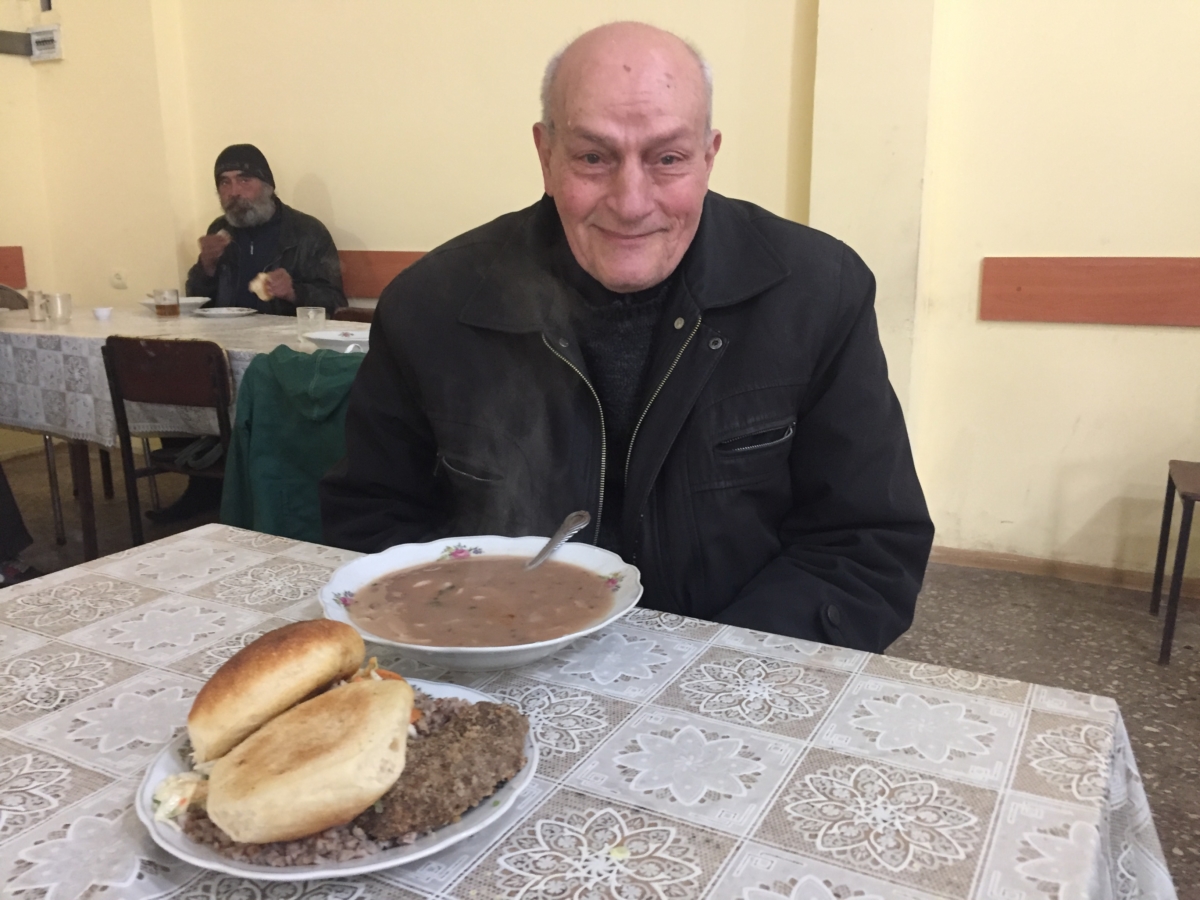
However, the dominant role in home care is played by community organizations that have been working with retirees for many years. Mission Armenia serves about two thousand pensioners and persons with disabilities in six regions and in the capital. This does not include the 1,350 people who are paid for by the state.
Pensioners’ plight not recognized
Armenian Caritas has been dealing with single pensioners in need of care and help since 2002. The organization helps 620 pensioners in four cities – Gyumri, Vanadzor, Gavar and Artashat.
The head of the Home Care for Lone Pensioners programme Flora Sargsyan says that the programme works only in cities. There is not enough funding to start working in villages, but they are looking for funds to expand activities.
“When selecting project participants, we look for those who are over 70 years old. We select single pensioners who do not have nearby relatives and who are in great need of home care. They live in poor living conditions, and have no income other than a pension,” says Flora Sargsyan.
Sargsyan says the people they help are mostly alone. However, they are not recognized as such, since their children or grandchildren who live outside the country are registered at their addresses.
“Shirak region takes first place in terms of migration, and the city of Gyumri is especially vulnerable. We provide the elderly with ongoing care. If necessary, we also carry out group visits. Social workers are involved with hygiene, the purchase of necessary goods and cooking.
“In addition, we provide washing, we even deliver clean dishes. We have many services, including psychological support. And when we knock on their doors and enter, they are very happy to see us,” says Flora Sargsyan.
The organization provides:
• medical services and information;
• advice on care and medical prevention;
• social support;
• necessary auxiliary items (canes, crutches, portable toilets).
Replacing shelters with group homes
Many single pensioners live in shelters where care is provided around the clock.
In Armenia, there are eight non-state and five state institutions. In total, 1,200 pensioners live in state residential homes, and 500 in private ones.
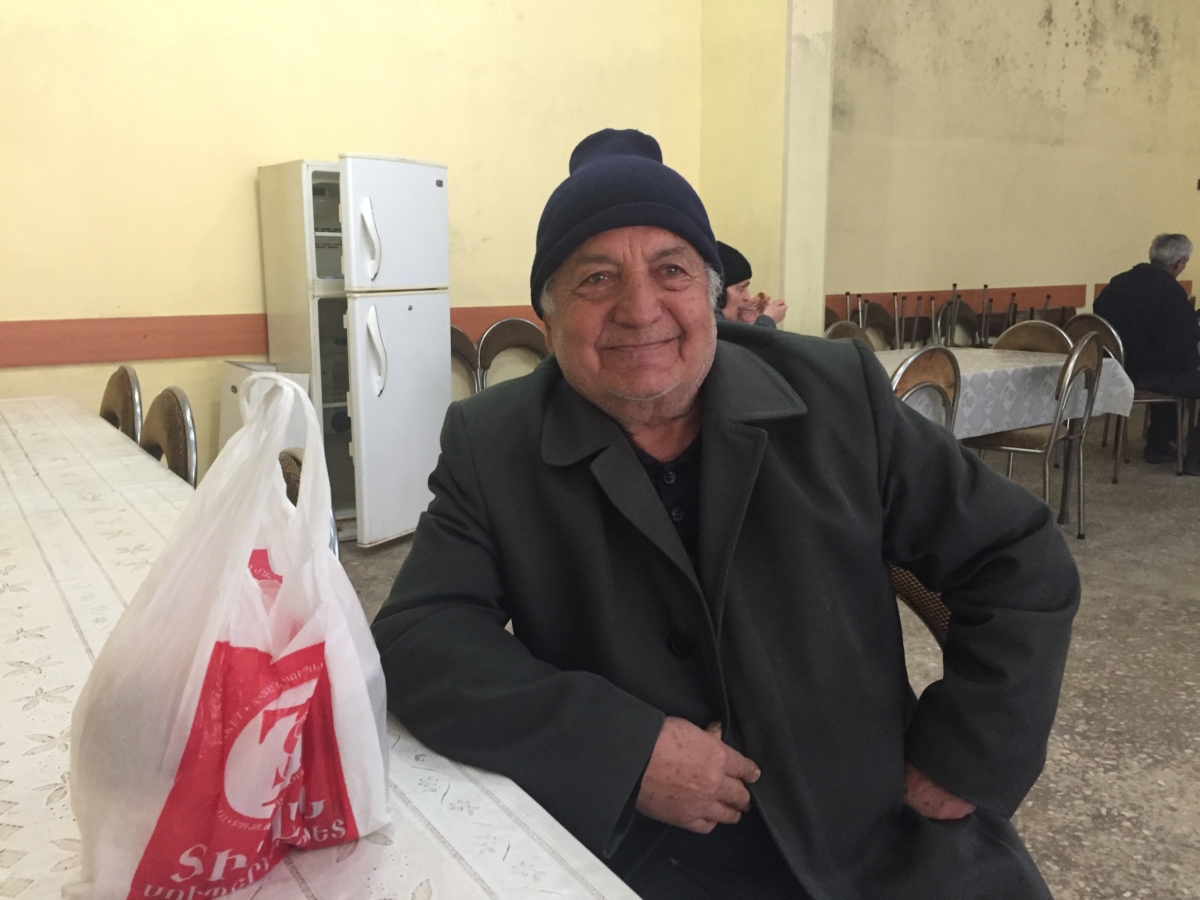
Anahit Gevorgyan, head of the pension affairs department, says that the government intends to phase out large shelters and gradually move to small community services and create homes in communities where groups of 8-10 people will live:
“This can be established at least with the cooperation and co-financing through the community, state and public organizations – there are many such financing mechanisms in the world. The share of the state will be reduced, and more effective services will be rendered. In a small house they can live as a family, and the services that will be provided to them will be of higher quality.
“We already have a precedent: 15 people in Spitak, and 35 in Abovyan. In large institutions today there are 230-250 people. Small institutions are always more effective – they bring more benefits to their wards. Our concept for solving the issue is to create small community services around the clock in the future.”













